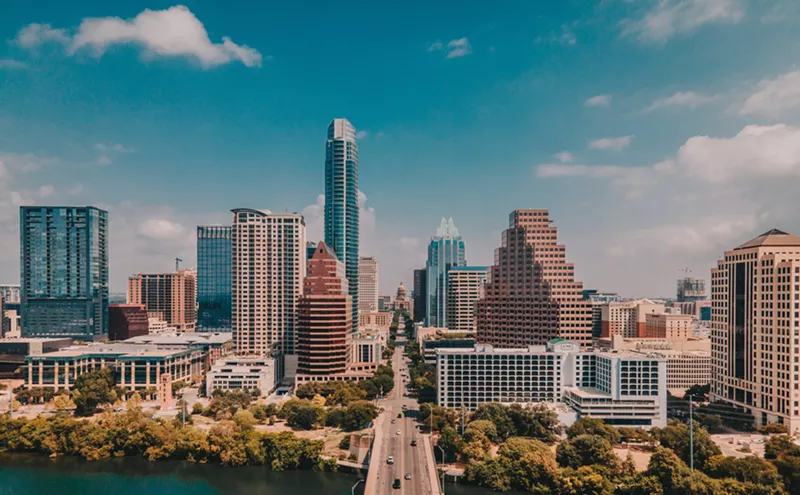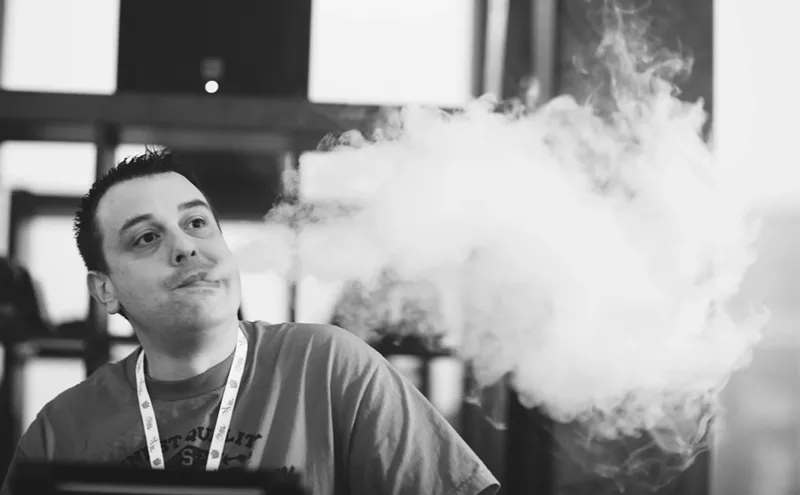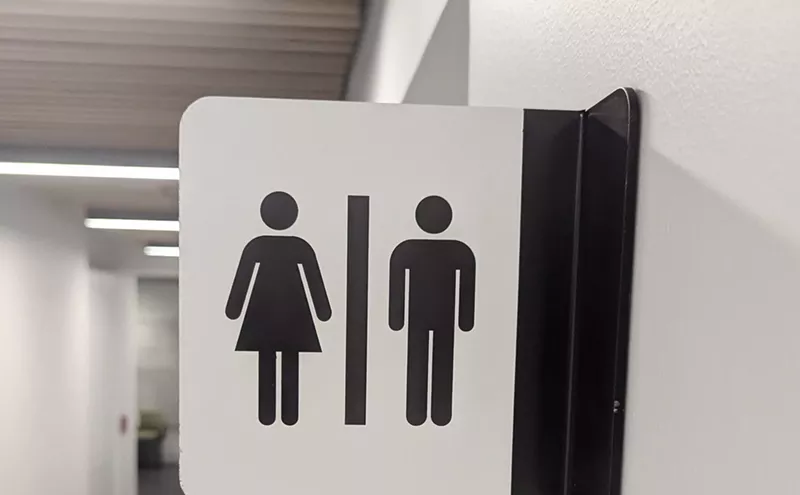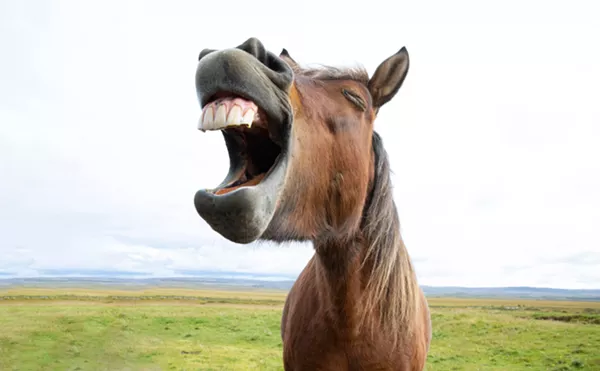To the court of public opinion: In the matter of City Council member Scott Griggs, who is also a member of the board of trustees of the Dallas Police and Fire Pension Board, on the question of whether a lawyer representing Griggs as a member of said pension board ever hired a guy to dig up dirt on Griggs, I, Jim Schutze, present myself before the court to declare that my own hands are not exactly squeaky clean here.
I dig dirt, too. The good news is that this issue is so dirty, only a dirt expert like myself could ever sort it out. Therefore I happily offer my services to the court.
At the end of last week, Steve Thompson broke a story for The Dallas Morning News saying Gary Lawson of the firm Strasburger & Price, an outside lawyer for the Dallas Police and Fire Pension Fund board of trustees, had paid Mike Snyder, a media consultant, to carry out a “forensic” investigation of Griggs. Thompson tied the investigation of Griggs to Griggs’ criticisms of financial management of the pension fund:
“This was a time,” Thompson wrote, “when the pension fund’s real estate investment strategies had come into question and Griggs was an outspoken critic of its policies.”
So Thompson suggests Snyder was looking for dirt that could be used to silence Griggs on the fund’s investment strategies. But Snyder, in a distinction that perhaps only a fellow dirt-digger like myself could appreciate, denied to me that he was ever hired to work on anything related to the fund’s investment strategies. He was looking for stuff on Griggs strictly related to the “Museum Tower” story.
Oh, that dirt. I know all about that dirt. In fact I was knee-deep in it myself three years ago. Museum Tower is a new and very shiny building the pension board bankrolled in the Arts District, so shiny and gaudy, according to detractors, that it supposedly is singeing the grass off the lawn at the very tasteful nearby Nasher Sculpture Center.
Since Museum Tower was being accused of being tasteless and gaudy and since the Nasher was known to be tasteful, I took Museum Tower’s side, of course. It also bothered me that the Morning News and D Magazine were bonded at the hip, presenting a united front against Museum Tower in both news and editorial columns — a scenario, whenever I encounter it in this town, that always reminds me of a medieval shunning.
But apparently the pension fund was not virginal in the matter, either. Thompson at the Morning News, also a respected digger of soils, did an open records demand for invoices that Snyder, the media consultant, had submitted to Lawson, the lawyer at Strasburger.
The invoices (copy below) — Snyder’s bills to Lawson — include brief references to a “forensic trace” on Griggs for which Snyder billed Lawson. Those line items appear in a dense context of other work Snyder did for Lawson, mainly using various pen names to post derogatory comments about the Nasher on local news blogs. I think Snyder pocketed over a hundred grand from Lawson in the period of a year for writing snarky comments on blogs, which to me is like getting paid a hundred grand to write naughty comments on bathroom walls. Damn good trick.
I spoke to Snyder after the invoices were made public at the end of the week. He said he had never carried out a criminal background check of Griggs and had used the term “forensic” in his invoices only to mean “thorough.” For what it’s worth, Webster’s defines forensic as meaning “characteristic of or suitable for a law court, public debate or formal argumentation.”
Snyder, a former hard-hitting investigative television reporter, defended his probe of Griggs with journalistic arguments: “First of all,” he told me, “[Griggs] is a public official. His life is laid out in public, and anything that’s in his background is fair game, period. You and I both know that as reporters.
“I have good investigative tools, very good investigative tools. I wanted to know what every person who was attacking this issue in one way or another had said. I did deep research on everybody.”
Snyder said, “My job was not to intimidate or bully anybody.”
I said I got all that. But what about Lawson, the lawyer Snyder was billing for all this work? When Lawson was questioned at last week’s pension board meeting about why Snyder had invoiced him for a forensic investigation of Griggs, Lawson said, “I have no idea.”
I emailed Lawson last Thursday with a detailed question about Snyder’s invoices to him. He emailed me back: “Thank you for your email but the invoices you are speaking about were not my nor my law firm's invoices. Good night. Gary”
Good night, Gary? Now there is a lawyerly kiss-off. No, I guess they weren’t Lawson’s invoices. They were Snyder’s invoices to Lawson. But c’mon. Might as well tell me goodnight, Moon. I asked Snyder what was up with that.
He said, “My invoices speak for themselves. You know who they went to. You know who received them. You know who paid for them. Sometimes we went line by line through them. My employer, Strasburger and Gary Lawson, knew exactly what I had billed and what had been done.”
A bit of background: In the last two years at the direction of the mayor, a serious attempt has been underway to figure out whether the pension fund has been fiddling away its assets for years on flaky investments (yes), whether its director needed to be shown the door (yes) and whether the fund could even be saved from itself (maybe, maybe not).
The point-persons in that effort have been Griggs, appointed to the pension board in 2012, and City Council members Lee Kleinman and Philip Kingston, appointed to the pension board in 2013. All three have made unsuccessful attempts to broker peace between Museum Tower and the Nasher, but all three have pivoted meanwhile toward a greater concern with the financial sobriety of the pension fund itself. We talked here recently about their efforts to reform the fund.
Snyder said all of the work he did for Lawson was related to the Museum Tower issue and none of it had anything to do with criticisms Griggs and the other two council members were making about the financial management of the fund.
“I didn’t have anything to do with that piece,” he said. “The only piece I had anything to do with was Museum Tower.”
That is what I might call a very dirt-diggerly distinction, as in, I wasn’t digging sandy loam, I was digging clay. I do get it. I don’t expect Griggs to.
Griggs, when I met with him about it this last week, had just learned about the Thompson story and was understandably upset. Remember: Griggs only recently emerged from an attempt by people at City Hall to press what seemed in the end to have been utterly false criminal charges on him for allegedly threatening to attack a female city employee. In that case it emerged that the main person pushing the case against Griggs was Dallas City Attorney Warren Ernst, who has since announced a pending early retirement.
So, wait. Pretend you’re Griggs. Do the math here with me. Ernst was supposed to be your lawyer, representing you and your interests as a member of the Dallas City Council. Then you found out he was pressing felony charges against you — eventually thrown out by a grand jury — even though not one of eight witnesses supported the charges.
Next you find out that Gary Lawson, who was supposed to be your lawyer and representing your interests as a member of the board of the pension fund, was paying a guy to do something “forensic” about you. You probably don’t really care if it was Museum Tower forensic or fiduciary duty forensic.
In fact when I spoke with Griggs, he didn’t seem to give a damn about any of that. He’s a lawyer. What had him round-eyed and spluttering was that Lawson, a fellow lawyer paid to represent him, was hiring somebody to dig up any kind of dirt at all on him without at least telling him he was being vetted.
I’m not a lawyer. I asked, “If somebody at the pension fund wanted to hire somebody to get dirt on you, should Lawson, as your lawyer, have told them he couldn’t have anything to do with that? Is that what he should have said?”
“No!” he said with some outrage. “He should have told them not to do it at all!”
Oh. Good point. I probably do see things a little too much from Snyder’s point of view. He was doing a job — one of those dirty jobs but somebody’s gotta do it. Actually, no, come to think of it. Nobody’s gotta do it.
Why, if a person takes a huge chunk of his time and heart away from his business and family and devotes it instead to public service, should he have to put up with this? I totally get Snyder telling me everything in Griggs’ life is open to examination. But why should Griggs have to look out for knives in the back from the very lawyers who have been hired to steer him right and protect him in the discharge of his public duties?
“I am their client,” he told me.
I said, “They don’t think you are their client.”
Griggs and his fellow council member Kingston are mavericks. The inside boys at City Hall call them collectively, “Grigston.” The lawyers don’t think they have any duty to the mavericks, only to the inside boys. That’s the dirt.
2015-12-10 Scan of Additional Pages of Invoices by Jim Schutze












